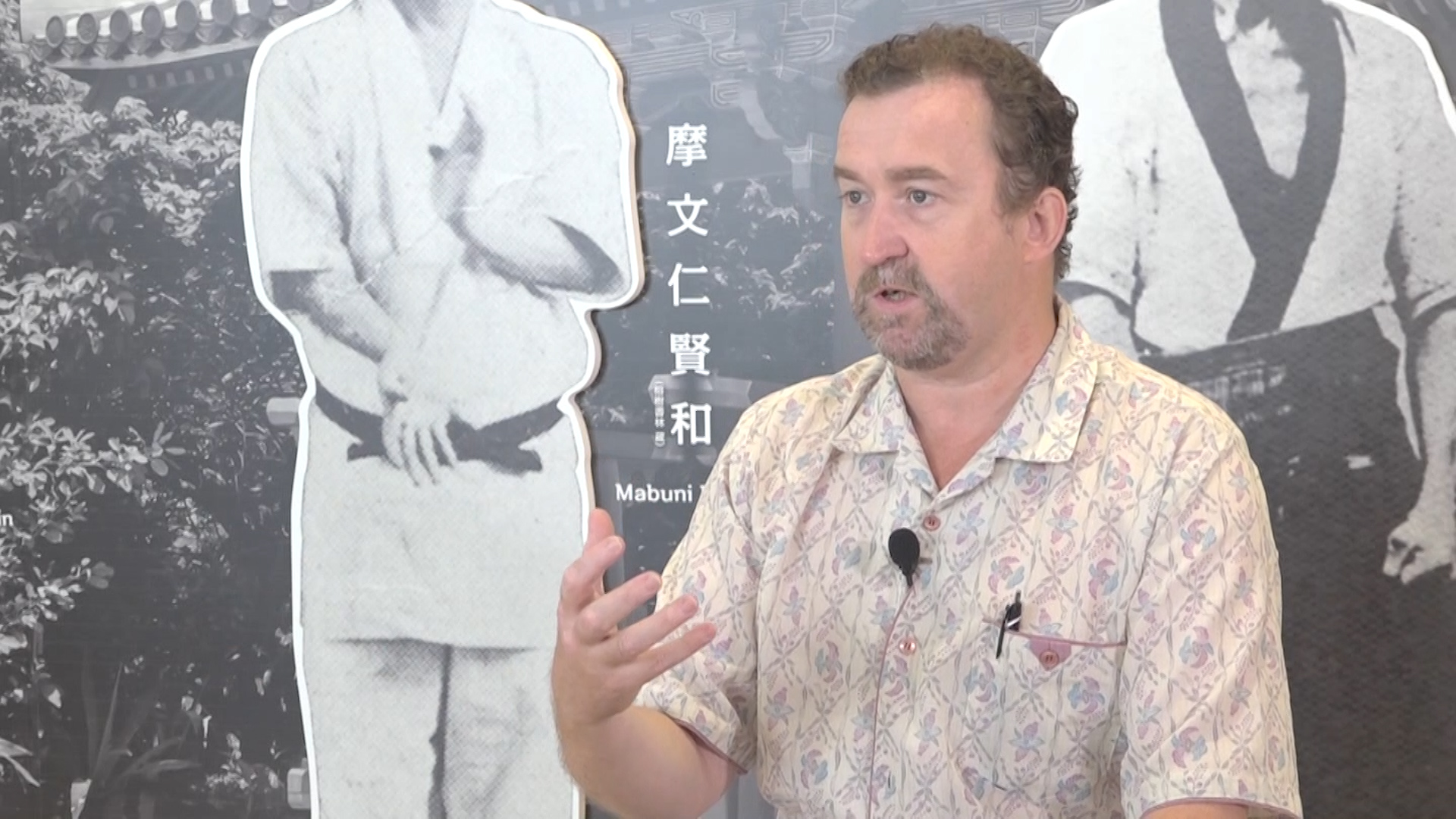Okinawan Karate is About Self-improvement, this is Why it Spread to the World
2019年3月12日
Miguel Da Luz

Tell us about your history
I first heard about Okinawa when I was around 14 or 15 years old. Until then I only knew that “karate=Japan”, and nothing else.
I lived in a small town in France with two karate dojos in the neighborhood. I used to go to the one in the community center. That dojo practiced karate originating from Okinawa. Even though I didn’t know much about it, the more skilled I became at karate the more I became interested in Okinawa. I came as a tourist in September 1993, and then obtained my permanent residency after that.
When I came to Okinawa I didn’t understand Japanese at all, so I took small jobs and learned little by little. As a karate practitioner, 11 years ago I had a chance to do some work related to karate. From there I gradually shifted from a karate practitioner to being more involved in the work around it, and assumed my current position.
Although I don’t have the right to vote, I consider myself an Uchinanchu.
What is Okinawan karate?
Karate originated in Okinawa, but the karate that later developed on mainland Japan is based on the existence of another person.
I believe that because of this need for an opponent, “kumite” (sparring) was developed, and this gradually became “sports karate”. It is significant as a sport but not something that one can keep up with as you grow older, and in fact many older people end up quitting altogether. The characteristic of Okinawan karate is that it is about improving oneself, and it is possible for anyone to practice, young and old. You can continue karate by listening to your own body. It is important to continue at a moderate pace rather than damaging your health by overdoing it.
What is Okinawan temperament through the lens of Okinawan karate?
Uchinanchu are perseverant.
Karate is discipline; it is important to train to improve oneself. Looking at the history of Okinawa, it is clear that Okinawa has overcome many difficult circumstances. This is a mental discipline. Isn’t it similar to karate practitioners cultivating perseverance? I believe Okinawa became the birthplace of karate because of this temperament.
People around the world don’t know the temperament of Uchinanchus. They think people from Okinawa to Hokkaido are all the same. However once visitors arrive in Okinawa, they start to realize its unique characteristics. It is something that you will not know until you actually visit.
For example, coming to Okinawa to listen to the sounds of the sanshin is completely different from listening to the same thing on YouTube.
How do we pass down the Uchinanchu spirit?
I believe one approach is to become accomplished in an art or performance that relates to Okinawan culture and identity.
I think it is not enough to be connected by blood alone. Many elements such as blood, spirit, and the arts make up the incredible culture on these small islands. This is because the society of Okinawa as a whole cherishes the arts. There is no Okinawa without kachashii, right?
Karate, sanshin and kumiodori are all part of Okinawan culture. It is crucial to learn it by the heart.
What do you think about World Uchinanchu Day?
I was at the Okinawa Cellular Stadium on the day of the announcement.
At the Worldwide Uchinanchu Festival in 2001, my friend put out a stall so I was there to help, cooking meats and sausages. It was fun and so great to see both Uchinanchu from Okinawa and abroad working together as one.
According to my research, Okinawan karate is passed down in at least 90 countries. I feel that fans of Okinawan karate in other countries can also become part of the Uchinanchus around the world.
“Uchinanchu” is not just blood; fans of Okinawa can also be considered Uchinanchu of the world. No doubt Uchinanchu ancestry is important, but to be honest, World Uchinanchu Day is only known to Uchinanchu, no? I do not think it is wrong to encourage fans to embrace it as well.
A word to Uchinanchu who are heading out to the world
I think it’s best to take an Okinawan art or performance with you.
Many who return from being abroad say, “I had nothing I could show people”, and start to learn something upon returning to Japan; you actually need to do that before leaving, because it is too late to do so after returning home. It is ideal to be able to do some kind of performance without any equipment like whistling or dancing. As for me, I think learning karate is probably the best.






